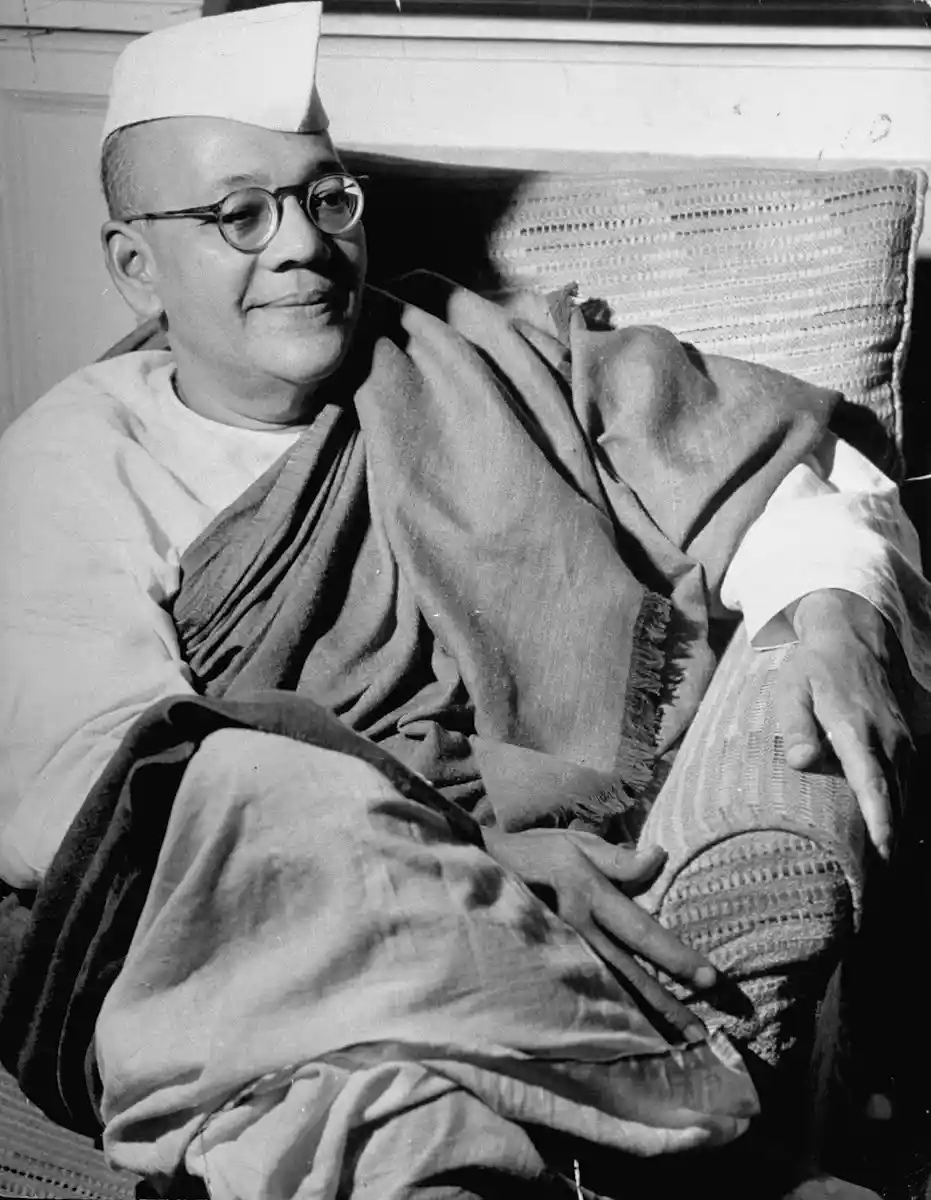One Hell of a Dauntless Bose
While the young Subhash of the Bose family seems to be remembered among everyone in the nation, the elder Sarat was one fearless revolutionary whose resolution had terrified the Britishers to the extent where they had to label him as a threat. Here’s a story about the lesser-known Bose, the story of the uncompromising and strong Sarat Chandra Bose.

The Face of a visionary; Source: Google Arts and Culture
“Mr. Sarat Bose is unquestionably a most dangerous opponent of the government and a man who in intellectual attainments is far superior to the majority of Congress leaders in the province”
“Sarat Chandra Bose assisted the revolutionary movement for years by means of his purse, his press, and his prestige.”
“His (Sarat Bose) remaining at large was a danger to the security of the British Dominions from the internal commotion.”
One thing is for sure, these descriptions make clear is that Sarat Chandra Bose was not to be underestimated or messed with. Well, you can't expect any less from a man who carried live bombs in his suitcase to help revolutionaries attempt a jailbreak. “Nothing which is morally wrong is politically right”, this was something he respectfully abided by following in the steps of 'Deshbandhu' Chittaranjan Das. A man with exemplary qualities, Sarat Chandra Bose led a rather eventful life.
Bose was born on 6th September 1889 in Cuttack, Odisha. He was the fourth out of the fourteen children belonging to Prabhabati Devi and Janakinath Bose. Sarat completed his early education from Cuttack and went ahead to Kolkata for his higher education. He even pursued his MA from Calcutta University and by 1911, had become a qualified lawyer.
Mentored by the renowned Nripendra Nath Sircar, Bose was known for being an excellent barrister with a keen power of advocacy. Despite his successful practice, he quit as a barrister to become a part of the Indian independence movement. He had been a member of Congress since 1918 but he became active in the later 1920s. Eight years later he also became a member of the Bombay Legislative Council and was considered important for the boycotting of the Simon Commission.
After discontinuing his professional career, Bose became an essential participant in the Civil Disobedience movement and devoted himself entirely to it. He even spent all his professional earnings and secretly financed the continuation of the whole Bengal revolution, for which he was thrown to jail in 1932.
It was in 1931 while he led the defence in the Chittagong Armoury Raid Case and was caught with bombs in his suitcase. His press that started as Forward with 'Deshbandhu' Chittaranjan had become an active voice for the Swarajya Party and a form of fearless yet honest journalism. Bose's adamant will to defy the press censorship law and promote justice was gracefully appreciated.
After his release in 1935, Bose was made the president of the Bengal Provincial Congress Committee and by 1936, he had also contested for the Calcutta Corporation elections. This period of the 1930s had been equally busy for both the Bose brothers with Subhash Chandra being the president since the members of Congress were parting their ways due to differences in opinions related to the partition plan.
Both Subhas and Sarat Chandra thus resigned from the All India Congress Committee in 1939.
Sarat Bose's bid for a united nation yet independent Bengal and North-East was supported by the Bengali Muslim league leaders, Mahatma Gandhi and also Muhammad Ali Jinnah, (he later changed his decision) it was however opposed among the INC and Hindu members of the Indian Legislative Council. This resignation had come off as a big change in his life. He thus worked towards Subhash Chandra's goal of forming the Forward Bloc.
In 1941 Bose formed the Progressive Coalition Party in alliance with A.K. Fazlul Haque of the Krishak Mazdoor Praja Party and was expected to join as a home minister in December. This however never happened since he got arrested on 11th December 1941.
This happened after the disguised escape of Subhash Bose and Sarat was arrested due to a plea saying his secret interactions with the Japanese had been revealed. He was thus imprisoned in a jail in Mercara, but due to his health being affected, he was later shifted to Coonoor. After spending four years in prison he was finally released in September 1945.
Bose made a surprising return to the Indian National Congress and had become a member with a high command by eventually leading the party to a victory during the 1946 elections. He also became a member of the Congress Working Committee. But it wasn't long before his decisions started clashing with the opinions of other members.
Sarat Chandra Bose's resolute still remained unchanged. He was the first to protest against the partition of Bengal and Punjab. He continued with his ardent efforts till the very end by coming up with any and whatever possible alternatives.
India however still embarked upon its crooked path of fate, eventually going through the partition in 1947. Bose on the other hand was still a man with a cause. Despite the death of his brother, Bose carried forward his dream of establishing the Forward Bloc. In addition to that, he also formed the Socialist Republican Party and led both the communities until the end.
He died on 20th February 1950 at the age of 60 but his visionary mindset and endless struggle towards protecting India from the disastrous partition are simply acts of pure courage and broad perspectives. Sarat Bose should never be a person to be overlooked but only be remembered for.


